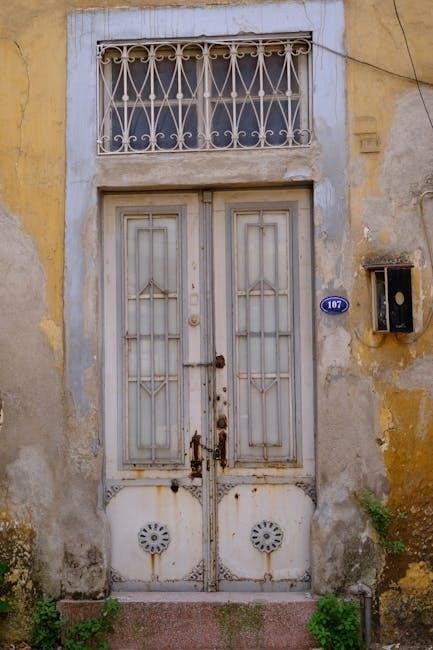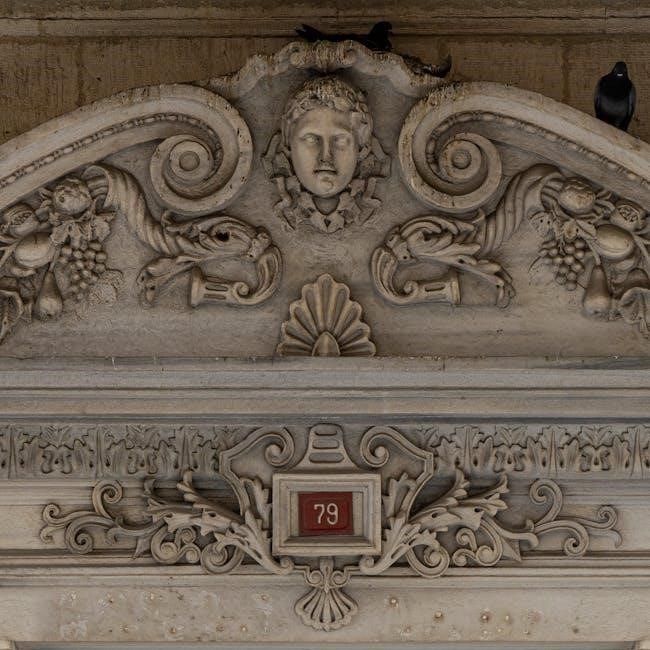
Basque ancient DNA and GEDmatch kit numbers provide insights into the genetic origins of the Basque people, bridging ancient and modern genetic genealogy through advanced tools.
Overview of Basque Genetic History
The Basque people exhibit a unique genetic profile, with studies suggesting deep roots in Europe. Their distinctiveness is traced through ancient DNA, showing minimal external influence. Researchers use tools like GEDmatch to analyze Basque genetic continuity, linking modern populations to ancient European groups. Historical isolation and cultural preservation have maintained their genetic distinctiveness. By comparing modern DNA with ancient samples, GEDmatch tools reveal ancestral connections, offering insights into migration and population dynamics. This genetic history highlights the Basques as a fascinating case study in European ancestry and population persistence.
What is GEDmatch and Its Role in Genetic Genealogy
GEDmatch is a free, third-party platform enabling users to upload and compare DNA results from various testing companies. It provides tools for chromosome browsers, admixture calculators, and ancestral studies. Researchers use GEDmatch to explore deep ancestry through ancient DNA kits, such as those related to Basque origins. By analyzing GEDmatch kit numbers, genetic genealogists uncover ancestral connections and migration patterns. The platform bridges modern and ancient DNA, offering insights into historical populations. Its tools facilitate detailed comparisons, making it invaluable for tracing lineage and understanding genetic diversity across Europe and beyond.

Understanding GEDmatch Kit Numbers
GEDmatch kit numbers are unique identifiers for DNA profiles, enabling users to compare and analyze genetic data. They are essential for accessing and sharing ancestry information.
What Are GEDmatch Kit Numbers?
GEDmatch kit numbers are unique identifiers assigned to DNA profiles uploaded to the GEDmatch platform. Each kit number corresponds to a specific DNA test, such as those from AncestryDNA, 23andMe, or FamilyTreeDNA. These numbers are essential for managing and sharing genetic data, enabling users to compare results, explore ancestry, and connect with genetic relatives. In the context of Basque ancient DNA, kit numbers play a crucial role in tracing lineage and identifying genetic patterns. They allow researchers to analyze and compare modern and ancient DNA samples, providing insights into the origins and migration history of the Basque people. Kit numbers are also used to access various tools and resources on the GEDmatch platform, making them a vital component of genetic genealogy research.
How to Find and Use Basque Ancient GEDmatch Kit Numbers
GEDmatch kit numbers for Basque ancient DNA can be found by searching public databases or collaborative genetic genealogy projects focused on Basque ancestry. Researchers often share kit numbers in academic papers or online forums. Once obtained, these numbers can be used to compare modern and ancient DNA samples on the GEDmatch platform. Users can access tools like the One-to-Many Report to identify shared segments and explore genetic connections. Additionally, chromosome browsers and admixture tools provide deeper insights into ancestral origins. By analyzing these kits, researchers can trace Basque lineage, identify migration patterns, and connect modern individuals with ancient populations. This process bridges the gap between historical and contemporary genetic studies, offering valuable insights into the Basque people’s unique genetic heritage.

Historical Context of Basque Ancient DNA
Basque ancient DNA reveals a unique genetic profile, with roots tracing back to pre-Indo-European populations in Europe. Ancient samples provide insights into the Basque people’s distinct origins.
Genetic Origins of the Basque People
The Basque people exhibit a unique genetic profile, distinct from other European populations, with roots tracing back to pre-Indo-European times. Ancient DNA studies reveal a strong continuity between modern Basques and ancient populations in the region. The Basques show a high frequency of the R1b haplogroup, specifically R1b-P312, which is common in Western Europe but reaches its highest concentrations in the Basque Country. This genetic distinctiveness suggests a deep-rooted isolation and preservation of ancestral lineages. Additionally, the absence of significant Steppe-related ancestry in Basques contrasts with other European populations, further emphasizing their unique genetic heritage. These insights are supported by GEDmatch kit comparisons, which allow researchers to explore ancient and modern genetic connections in detail.
Archaeological Evidence of Ancient Basque Populations
Archaeological findings in the Basque region reveal a rich history of human habitation, with evidence of ancient populations dating back to prehistoric times. Excavations at sites like the Longar cave and the Marizulo site have uncovered artifacts such as tools, pottery, and burial remains, which provide insights into the lives of early Basque communities; These discoveries suggest a continuity of cultural and genetic traditions, aligning with the unique genetic profile identified in modern Basque populations. The archaeological record, combined with ancient DNA analysis, supports the theory of a deep-rooted, isolated population that has maintained its distinct identity over millennia. GEDmatch kit comparisons further enhance this understanding by linking modern genetic data with ancient ancestral lineages.
Analyzing Basque Ancient GEDmatch Kit Numbers
Analyzing Basque ancient GEDmatch kit numbers involves using advanced tools to interpret genetic matches, offering deep insights into ancestral origins and historical population dynamics.
Step-by-Step Guide to Interpreting GEDmatch Results
To interpret GEDmatch results effectively, start by identifying relevant Basque ancient DNA kits using available resources or lists. Upload your DNA data to GEDmatch and utilize the comparison tools to align your profile with ancient Basque kits. Use the chromosome browser to visualize matching segments, which can indicate ancestral connections. Assess the significance of matches based on segment size and location, keeping in mind that larger segments may suggest stronger ancestral ties. Consider the unique genetic profile of the Basque people and the historical context to enhance your analysis. Be mindful of data accuracy and privacy, and consult guides or communities for further insights and discussions.
Using GEDmatch Tools for Deep Ancestry Analysis
GEDmatch offers advanced tools for deep ancestry analysis, enabling users to explore ancient connections. The chromosome browser allows detailed segment comparison with Basque ancient DNA kits, while one-to-many reports reveal shared ancestry. The Archaic Matches tool identifies segments matching ancient populations, aiding in tracing deep roots. Users can filter results by time periods or specific populations to focus on Basque-related matches. By analyzing shared segments and overlapping regions, researchers can infer ancestral ties. Additionally, GEDmatch’s admixture tools provide insights into ancestral composition, linking modern DNA profiles to ancient Basque genetic signatures. These tools collectively bridge modern and ancient genomes, offering a comprehensive view of Basque ancestry through genetic data.

Case Studies of Basque Ancient DNA Kits
Case studies of Basque ancient DNA kits reveal insights into the genetic legacy of the Basque people. Researchers analyze GEDmatch kits to trace ancestral origins and historical migrations. These studies highlight how ancient Basque DNA aligns with modern populations, offering a bridge between past and present. By examining specific kits, genetic genealogists uncover patterns of inheritance and population movements. Such case studies provide valuable evidence for reconstructing Basque history and identity, while also addressing challenges in interpreting ancient genetic data. These analyses are crucial for understanding the unique genetic profile of the Basque people and their enduring impact on European ancestry.
Examples of Well-Documented Basque Ancient Kits
Several well-documented Basque ancient DNA kits have been analyzed through GEDmatch, providing valuable insights into the genetic history of the Basque people. These kits, often associated with archaeological findings, have been uploaded to GEDmatch by researchers to compare with modern DNA profiles. For instance, kits linked to ancient Basque populations, such as those from the Iron Age or medieval periods, have been extensively studied. These kits reveal distinct genetic markers that are still present in modern Basque individuals, highlighting a strong continuity of ancestry. By examining chromosome segments and admixture results, genetic genealogists can trace how ancient Basque DNA has persisted through the centuries. Such well-documented kits serve as a bridge between ancient and modern populations, offering a unique perspective on Basque origins and migrations.
Lessons Learned from Basque Genetic Genealogy Projects
Basque genetic genealogy projects have uncovered significant insights into the region’s unique genetic heritage. By analyzing ancient DNA and modern profiles, researchers have identified distinct Y-chromosomal and mitochondrial haplogroups prevalent among Basques. These studies highlight a strong continuity between ancient and modern populations, suggesting minimal external influence over millennia. Additionally, GEDmatch has proven instrumental in connecting distant relatives and tracing ancestral lineages, emphasizing the importance of collaborative research. Challenges, such as limited ancient DNA samples and privacy concerns, underscore the need for ethical practices. Overall, these projects demonstrate how genetic genealogy can illuminate historical mysteries and foster a deeper understanding of Basque identity, offering valuable lessons for future research and collaboration in the field.
Modern Implications of Basque Ancient DNA Research
Basque ancient DNA research reshapes modern identity, fostering community connections and scientific advancements, while GEDmatch tools enable individuals to trace deep ancestry and explore genetic heritage globally.
How Ancient DNA Shapes Modern Basque Identity
Basque ancient DNA has profoundly influenced modern identity by revealing deep genetic roots and unique ancestral connections. These findings, often analyzed through GEDmatch, highlight the Basques’ distinctiveness and continuity, fostering pride and cultural preservation. By tracing lineage to ancient populations, individuals gain a tangible link to their heritage, strengthening ethnic solidarity. The integration of genetic data into personal and collective narratives has also sparked renewed interest in Basque history and traditions, bridging past and present. This genetic insight not only enriches personal identity but also contributes to broader discussions on European migration and population dynamics, making the Basque people a fascinating case study in genetic continuity.
The Role of GEDmatch in Contemporary Genetic Studies
GEDmatch serves as a pivotal platform in contemporary genetic studies, offering advanced tools for analyzing DNA data and connecting individuals with shared ancestry. By enabling the comparison of genetic profiles across different testing companies, GEDmatch facilitates deeper insights into ancestral origins. Its extensive database and user-friendly interface make it an invaluable resource for both hobbyists and researchers. For Basque studies, GEDmatch provides a unique opportunity to explore ancient DNA connections, helping to trace migration patterns and validate historical hypotheses. This platform not only enhances personal genealogical research but also contributes to broader academic understanding of population genetics, making it indispensable in the field of genetic genealogy.

Resources for Further Exploration
Explore recommended readings on Basque genetic history, join online forums discussing ancient DNA, and utilize tools like GEDmatch for deeper ancestry analysis and resource discovery.
Recommended Reading on Basque Genetic History
For deeper insights into Basque genetic history, explore studies like “The Genetic History of Europeans” and “Basque Genetic Origins.” These works reveal ancient DNA connections, tracing Basque ancestry through GEDmatch tools, offering a bridge between historical and modern genetic research.
Online Communities and Forums for Genetic Genealogy
Engage with online forums like the GEDmatch Facebook group or Reddit’s r/GeneticGenealogy to discuss Basque ancient DNA and share kit numbers. These platforms offer insights into ancestry, case studies, and expert advice. Tools like GEDmatch’s chromosome browser and Eurogenes K36 help analyze results, fostering collaboration among researchers. Active discussions provide updates on new kits and methodologies, aiding deeper exploration of Basque genetic heritage. Participating in these communities enhances understanding and connects enthusiasts worldwide, making them invaluable resources for genetic genealogy enthusiasts.